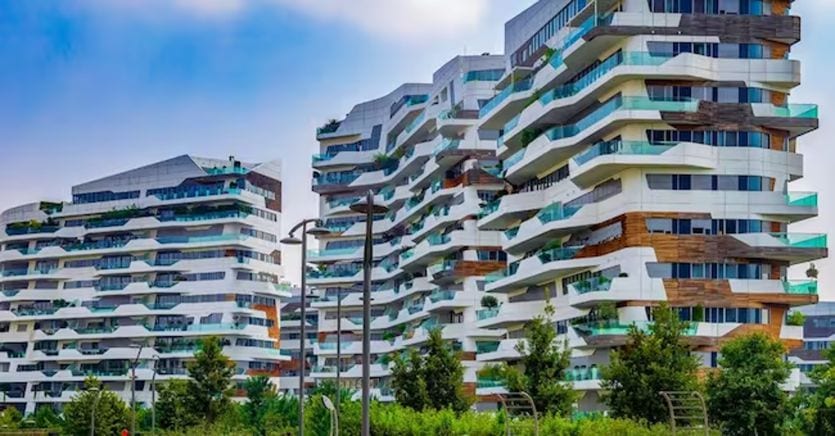The Directive on “green” homes, aka “near zero” has yet to start its journey in the European Parliament: nearly zero polluting emissions as required by one of the requirements of the Fit for 55 package with Horizon 2030 and then even further. However, although we are in the first rounds of the table for articles and paragraphs, the new environmental rules for real estate are already having effects and driving the market. Starting precisely from the “green” element, which is forcibly included in the possible choices of homeowners.
Investigation
According to a survey conducted by Confindustria Assoimmobiliare for the SWG, 56% of those intending to buy a home declare that they want first-class homes, against 26% against and 19% silent. But that’s not all: the majority (55%) would exclude buying homes with lower energy values — those in the E through G range — even if they saved on the purchase price. Confindustria Assoimmobiliare President Silvia Rovere said: “These data show us the path that the market is already starting to follow. In fact, there is a strong and widespread demand for greenhouses that guide the investment decisions of households that need adequate supplies. ” According to the association, the Italian garden will not lend itself to cosmetic operations. “It is necessary – explains Rovere – to replace existing real estate assets with new buildings with high performance Energy”. But how? “In all Italian cities there are entire neighborhoods with buildings that are obsolete, dilapidated, unsafe and certainly devoid of any architectural historical value, which must be demolished and rebuilt according to the highest standards of energy, seismic efficiency and technology,” continues the representative of operators and investors in the real estate sector. .
The value of energy-intensive properties
There is, however, a second aspect, for the time being more psychological than pragmatic, given that the directive must not only be approved, but then implemented with broad provisions of autonomy for the states. This means that more than two-thirds of those interviewed (67%) are convinced that less energy-efficient homes will suffer significant losses in value in the coming years, that home renovations will be more expensive (66%) and that no one wants to buy low-energy homes. (59%). In this scenario, the idea of state incentives makes its way: 60% of those questioned say they are confident in the generous hand of the state with regard to the adaptation of existing and new construction. Also because another dominant perception, confirmed by 67% of the interviewees, is that in Italy today there is a stifling supply of energy-saving properties: according to 71% of the panel all new homes should henceforth be built in grade A.
main house
But the crucial question is what concerns the approach to the home in which one lives: a significant share equal to 42% of those living in a class property between E and G or unaware of the class declare that they are ready to renovate their home to improve its efficiency while a meager 11% declare that they are ready For sale to buy a first class home. However, 47% of respondents still say they want to stay in their home even if its value has declined and in the face of rising energy costs. Not to mention the lack of awareness of what exactly we are talking about: the energy class of your property is unknown to 49% of owners and 16% of renters. In no case directive or not, commitments or not, the redevelopment node remains central. «55% of the housing units were built before 1975, that is, before the entry into force of the current regulations regarding energy savings, earthquake risks, and hydrogeological risks. – explains Rovere -. The law under discussion in Brussels should be seen as a powerful incentive to build more efficient and safer homes.”

“Infuriatingly humble alcohol fanatic. Unapologetic beer practitioner. Analyst.”



